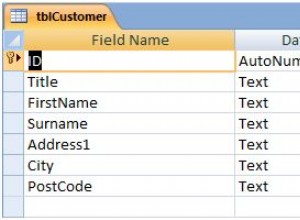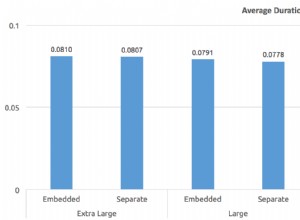प्रश्न में सेटअप इस तरह दिखना चाहिए:
create table a_table (id int, data json);
insert into a_table values
(1, '{"bookIds": [1,2,3,5], "storeIds": [2,3]}'),
(2, '{"bookIds": [4,5,6,7], "storeIds": [1,3]}'),
(3, '{"bookIds": [11,12,10,9], "storeIds": [4,3]}');
json मानों के उचित सिंटैक्स पर ध्यान दें।
आप फ़ंक्शन का उपयोग कर सकते हैं json_array_elements()
select id, array_agg(e::text::int)
from a_table, json_array_elements(data->'bookIds') e
group by 1
order by 1;
id | array_agg
----+--------------
1 | {1,2,3,5}
2 | {4,5,6,7}
3 | {11,12,10,9}
(3 rows)
any() का इस्तेमाल करें
सरणियों में किसी तत्व की खोज करने के लिए, जैसे:
select *
from (
select id, array_agg(e::text::int) arr
from a_table, json_array_elements(data->'bookIds') e
group by 1
) s
where
1 = any(arr) or
11 = any(arr);
id | arr
----+--------------
1 | {1,2,3,5}
3 | {11,12,10,9}
(2 rows)
<@ operator के बारे में भी पढ़ें
।
आप इसके तत्वों की जांच करके json सरणी (इसे int सरणी में परिवर्तित किए बिना) में भी खोज सकते हैं, जैसे:
select t.*
from a_table t, json_array_elements(data->'bookIds') e
where e::text::int in (1, 11);
id | data
----+-----------------------------------------------
1 | {"bookIds" : [1,2,3,5], "storeIds": [2,3]}
3 | {"bookIds" : [11,12,10,9], "storeIds": [4,3]}
(2 rows)




